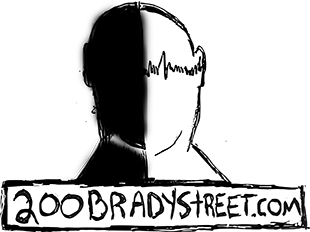Preamble:
Whereas it is the inherent right of the people to ensure transparency, honesty, and accountability in governance;
And whereas any act, law, or ordinance that is enacted under false pretenses violates the fundamental trust between the government and the governed;
We, the undersigned, hereby enact “The Warren Act of 2024” to challenge and rectify the deployment of automated enforcement systems (including red light and speed cameras) by municipal authorities under deceptive pretenses of public safety, while the true intent remains revenue generation.
Article I: Declaration of Principles
- Transparency and Honesty: The government must operate with utmost transparency and honesty, especially when enacting laws or ordinances that affect public safety and welfare.
- Public Trust: Any act or law enacted under deceptive pretenses undermines public trust and is contrary to democratic principles.
- Right to Information: Citizens have an unequivocal right to access information, especially when it concerns public safety and welfare.
Article II: Grounds for Challenge
- Deceptive Intent:
- Evidence suggests that the deployment of automated enforcement systems (red light and speed cameras) is primarily for revenue generation rather than public safety.
- Suspected revenue forecast models exist for these systems, yet there are no published/corresponding public safety initiatives funded by this revenue.
- Obstruction of Information:
- Freedom of Information Act (FOIA) requests related to the automated enforcement systems have been denied or met with exorbitant costs, indicating potential concealment of true intent.
- Ethical and Legal Violations:
- The deceptive enactment of laws or ordinances constitutes a manipulation of public perception, violating ethical standards of governance.
- Such acts may contravene constitutional provisions ensuring transparency, accountability, and the right to information.
Article III: Specific Issues with Automated Enforcement
- Lack of Driver Identification:
- The technology exists for automated enforcement systems to take clear photos of drivers even in challenging conditions, yet these systems do not capture images of drivers, raising questions about the true intent behind this omission.
- No Demerit Points:
- Automated enforcement tickets carry no demerit points or immediate penalties, unlike tickets issued by an officer, suggesting the primary goal is revenue generation rather than improving public safety.
- Notice Delivery Issues:
- Notices of offenses are sent via standard mail without tracking, lacking proof of delivery. In an era where digital communication is prevalent and more reliable, this method appears designed to reduce administrative costs and maximize revenue rather than ensure proper notification.
- Ease of Fine Payments:
- The system is designed to make fine payments as easy as possible, with no effort to capture the actual offender, no demerit points, and no tracking of notices. This could be perceived as part of an overall deceptive strategy focused on revenue generation rather than genuine public safety.
Article IV: Legal and Ethical Justifications
- Constitutional Provisions:
- Section 2(b) of the Canadian Charter of Rights and Freedoms guarantees freedom of thought, belief, opinion, and expression, including the right to access government information.
- Section 24(1) of the Charter allows individuals to challenge laws that infringe on their rights and freedoms.
- Human Rights:
- The Universal Declaration of Human Rights, Article 19, states that everyone has the right to freedom of opinion and expression, including the right to seek, receive, and impart information.
- Legal Precedents:
- The Supreme Court of Canada has consistently upheld the importance of transparency and accountability in governance (e.g., Dagg v. Canada (Minister of Finance), [1997] 2 SCR 403).
Article V: Proposed Actions
- Immediate Suspension:
- Immediate suspension of all automated enforcement systems pending a comprehensive and transparent review of their true purpose and impact.
- Public Inquiry:
- Establishment of a public inquiry to investigate the true intent behind the deployment of automated enforcement systems and the handling of FOIA requests.
- Policy Reformation:
- Reform of municipal policies to ensure that all future implementations of public safety measures are transparently documented, justified, and reviewed by an independent body.
- Legal Recourse:
- Provision for citizens to seek legal recourse and damages if it is proven that automated enforcement systems were deployed under deceptive pretenses.
Article VI: Commencement
This Act shall come into force on the 9th day of June 2024.
Article VII: Conclusion
By enacting “The Warren Act of 2024,” we assert the need for ethical governance and the protection of citizens’ rights to transparency, honesty, and accountability. This Act serves as a bold challenge to any authority that seeks to deceive the public under the guise of safety or welfare, ensuring that all laws and ordinances are enacted in the best interest of the people.
Signatories:
)
Appendix:
Section 2(b) of the Canadian Charter of Rights and Freedoms: “Everyone has the following fundamental freedoms: … freedom of thought, belief, opinion and expression, including freedom of the press and other media of communication.”
Section 24(1) of the Canadian Charter of Rights and Freedoms: “Anyone whose rights or freedoms, as guaranteed by this Charter, have been infringed or denied may apply to a court of competent jurisdiction to obtain such remedy as the court considers appropriate and just in the circumstances.”
